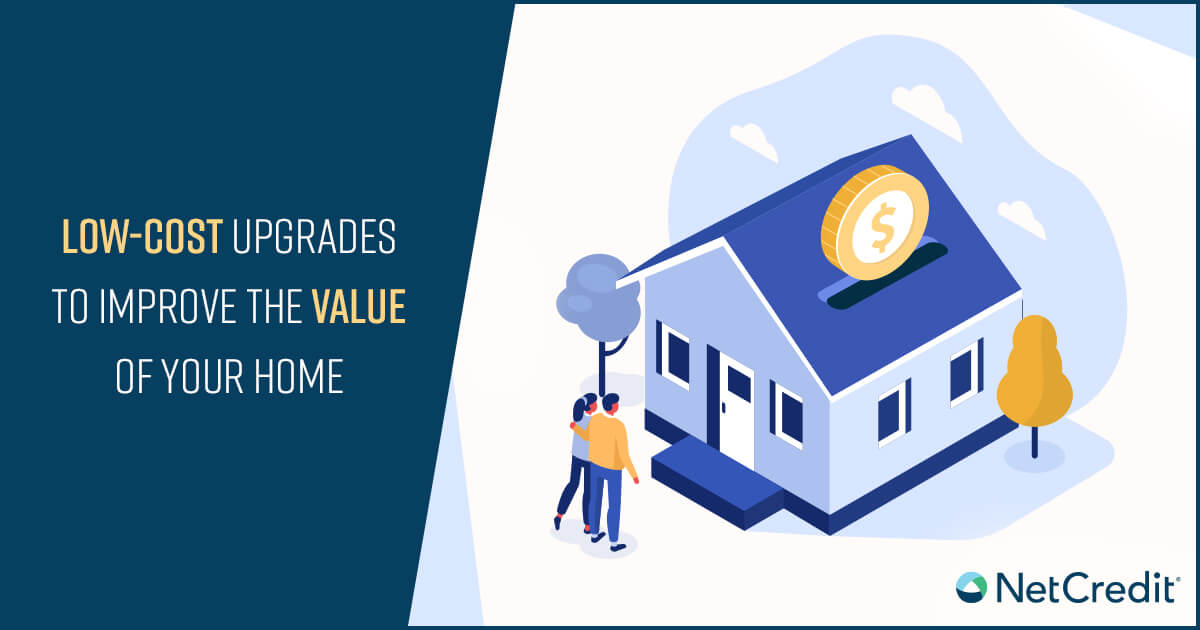One of the perks of being a homeowner is having the ability to create your dream abode that reflects you and your ideal lifestyle, especially as new design trends and home technologies emerge. But more often than not, other priorities take precedence over our finances, making it more difficult to keep up with the Joneses.
However, with a wider variety of financing options available, paying for home improvements is more accessible for homeowners than it once was. In fact, 76 percent of homeowners are now more likely to make both necessary home improvements and aesthetic upgrades when they can avoid high-interest credit card payments and hard credit checks. We’ve decided to take a closer look at the different ways to upgrade your home without risking your credit score’s stability.
Keep Remodeling Costs as Low as Possible
Ideally, after a home improvement project, you want to break even or be in the green, so to speak. In other words, you want to be able to enjoy the end results with little to no debt. The reason being is that the amount of debt you have is a significant determinant of your credit score. To avoid incurring a substantial amount of debt, paying for renovations outright with the money you already have is the most preferable way to finance a home remodel.
It’s hard to predict for sure if you can afford a remodel entirely on your own. However, with a little forethought, you can save yourself a good amount of money. For example, a major kitchen remodel can run you upwards of $30,000 on average, whereas a minor kitchen remodel may only cost $10,000. A savings of $20,000 can be the difference between paying out of pocket or borrowing money.
To achieve a relatively debt-free remodel, think about where you can cut costs without compromising your home improvement goals. A smart starting point is to make upgrades in stages instead of all at once. For instance, you could replace old flooring, cabinetry, and countertops now, and then wait until you replenish your savings for big-ticket upgrades down the line, like new appliances. So long as your appliances are functioning properly, there’s no harm in waiting to replace them instead of burning a hole in your pocket in one fell swoop.
Borrow Responsibly to Boost Your Credit
In a perfect world, we would all be able to afford our home upgrades upfront. But more likely than not, many may find themselves needing to borrow money to fund bigger home improvement projects. Most notably, homeowners will use a personal loan or credit card to pay for remodeling expenses. However, if you borrow responsibly, you can actually use your home improvement ventures to your advantage and build your credit rather than hurt it.
The key to improving your credit and keeping it in good standing when borrowing money is to make on-time payments consistently. Each time you make a payment, that payment is reported to major credit bureaus, which in turn will factor it into your credit score. Since credit scores and overall credit history reflect payment patterns over time, paying on time and not missing any payments can ultimately build your credit history for the better.
Aside from payment history, other factors like credit utilization and credit inquiries can also impact your credit score. Therefore, bonus pointers to help your credit remain in good standing while borrowing money include keeping your outstanding credit card balances low and avoiding applying for multiple new credit accounts in a short time frame.
Explore Financing Opportunities Through Contractors
If you have to borrow money to make your home improvement projects a reality, and you want to borrow responsibly, then be sure to research all available options to make repayments as manageable as possible. You may be surprised by the worthwhile payment choices you can obtain outside of the typical loan or credit card.
When it comes to home renovations and remodels, if you’re working with a contractor, ask them about how they can help you finance your project. There are specialty lenders who work with contractors to help their customers—like you—finance their home improvement projects, even for those with credit scores as low as 500. Likewise, some contractors also offer their own in-house financing options. Typically, both choices include flexible payment plans, either interest-free or with reasonably low-interest rates.
However, when arranging an interest-free loan through a contractor, Consumer Reports warns that you could end up owing interest backdated to the day you signed the agreement if you fail to pay off the loan before the term expires.
The information in this article is provided for education and informational purposes only, without any express or implied warranty of any kind, including warranties of accuracy, completeness or fitness for any particular purpose. The information in this article is not intended to be and does not constitute financial or any other advice. The information in this article is general in nature and is not specific to you the user or anyone else.






